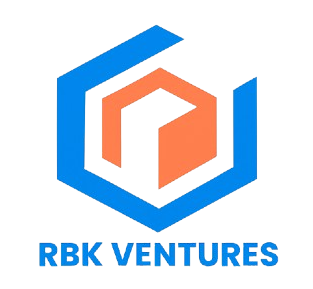

By RBK Venture
June 2025
Startups in 2025: A Market Reset and the Rise of Real Value
An Investment Banker’s View on the New Startup Era
In recent years, the startup ecosystem has experienced a meteoric rise, a dramatic correction and now a quiet but resolute phase of recalibration. The hype of 2020–2022 is giving way to a more grounded, disciplined and value driven approach to entrepreneurship.
As an investment banker working closely with early stage and growth stage businesses, I’ve witnessed this transformation firsthand and it’s redefining what it means to build, fund, and scale a startup in 2025.
The End of “Grow at All Costs”
The previous cycle was defined by hyper growth. Startups like Byju’s and WeWork raised billions on the back of ambitious growth stories and rapid expansion. But both eventually stumbled not due to lack of demand, but because their business models couldn’t support their speed.
The lessons are clear :
In today’s market, capital is no longer chasing ideas blindly. It is chasing resilient models, revenue visibility and scalable economics.
What Today’s Investors Are Really Looking For
The definition of a “fundable startup has shifted dramatically. Investors from angels to large VC firms are now prioritizing:


For instance, Zoho which grew profitably without any external funding and Freshworks, which built solid revenue streams before going public, are textbook examples of what long term value creation looks like.
Valuation Realism is Back
Gone are the days of inflated valuations based on vanity metrics. Startups like OYO and PharmEasy, once unicorn darlings, have had to delay IPOs and recalibrate expectations
Investment advisors today play a critical role in helping founders:
Experts in the field often advise founders to prioritize long term ownership and strategic investor alignment over chasing short term valuation spikes.
Strategic Capital Over Pure Capital
Another key trend: founders now seek value aligned investors, not just check writers. Corporate VC arms, family offices and sector specific funds are becoming preferred partners not because they offer more money, but because they offer more relevance.
A good example is Reliance investment in Dunzo. The deal wasn’t just about money it was about distribution leverage, ecosystem integration and long term synergy. That’s the new benchmark.
Exit Planning is Not Optional Anymore
Whether it’s IPO, M&A or secondary sale, startups must think exit from Day 1. Investors want to know the path to liquidity and founders need guidance in aligning structure, governance and documentation for a clean, investable profile.
The Flipkart Walmart deal stands as India’s most celebrated VC exit not just for the size, but for the planning and strategic positioning that made it possible.
Final Thought: We’re Entering a “Builder’s Market”
The noise has cleared. What remains is a startup ecosystem where only true value survives value for customers, investors and the economy.
For founders, it’s time to go back to basics:
For investors, this is a golden era where pricing is rational, opportunities are tangible and the ecosystem is finally ready for sustainable innovation.
The lessons are clear
Growth must be sustainable.
Customer acquisition must be profitable.
Founders must balance vision with financial discipline.
Recent Posts

Startups in 2025 : A Market Reset and the Rise of Real Value

Startups in 2025 : A Market Reset and the Rise of Real Value
Our Strategic Sectors
Fintech and Digital Finance
FMCG and New Age Consumer Brands
Energy, Oilseed and Agri Linked Ventures
B2B SaaS and Enterprise Technology
